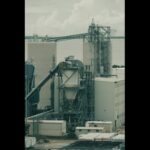US President Donald Trump on Thursday signed an executive order reducing tariffs on Japanese car imports from 27.5% to 15%, in a move aimed at easing uncertainty for major automotive manufacturers such as Toyota, Honda, and Nissan.
The order formalises a trade agreement first announced in July, under which nearly all Japanese exports to the United States – including vehicles and pharmaceuticals – will now face a 15% levy. In return, Tokyo has pledged to invest $550bn (£410bn) in US projects while gradually opening its economy to American products, notably rice and cars, according to the White House.
Months of Negotiations
The deal follows months of tense negotiations between Washington and Tokyo, sparked after Trump imposed sweeping tariffs on numerous countries worldwide in April. “Finally,” Japan’s top trade negotiator Ryosei Akazawa remarked in Japanese as he reposted the White House’s announcement of the executive order.
According to the executive order, the agreement is intended to shrink America’s trade deficit with Japan while creating “breakthrough openings” for US businesses.
Japanese Commitments
The White House said Japan has committed to purchasing $8bn worth of American goods annually, spanning agricultural products, fertilisers, and bioethanol. Tokyo has also agreed to increase its imports of US-grown rice by 75% over time – a concession Japan had long resisted to safeguard its domestic farming sector.
Trump described the pact as “massive” when it was first revealed in July. “It’s a great deal for everybody. I always say it has to be great for everybody. It’s a great deal,” he told reporters during a press conference.
Economic Impact
Japan’s export-driven economy relies heavily on sales abroad, with the US standing as its single largest market. Automobiles represent roughly 20% of Japan’s total exports.
Trump’s tariffs, which took effect in August, had unsettled the global market as governments and businesses scrambled to adapt. In August, Toyota cautioned that the US tariffs would cost the company around $10bn in 2024 alone.
On Friday, shares in Japanese automakers and component suppliers climbed in Tokyo trading sessions following the executive order, reflecting investor optimism about the easing of trade tensions.






